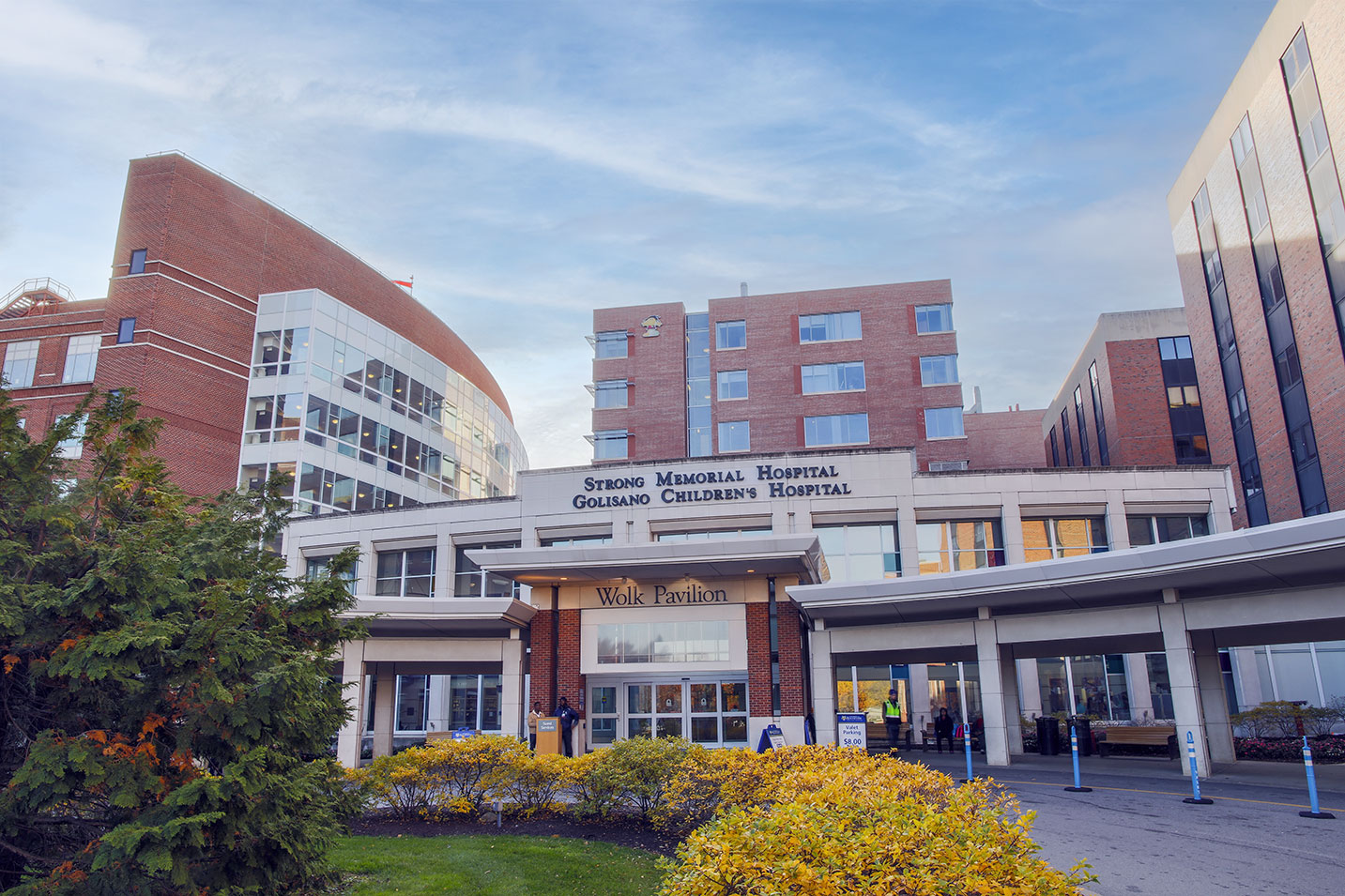Thyroid Cancer
Make Appointments & Get Care
What is Thyroid Cancer?
Thyroid cancer starts when cells in the thyroid mutate and grow out of control. The majority of thyroid cancers are slow growing, or “indolent," and have an excellent prognosis. Most thyroid cancers don't come back after treatment. The most common type of thyroid cancer is Papillary Thyroid Carcinoma.
It’s normal to have few or no symptoms, in part because of how slow-growing thyroid cancer is usually. One of the most common symptoms is a lump (growth) in your neck, called a nodule. This might be found during a routine physical, caught on a scan of the neck or chest, or you might notice it yourself. Other symptoms may start as the nodule grows and include:
- A visible lump in the middle of the throat above the collarbone
- Sensation of pressure, fullness, or pain in the front of the neck
- A cough that won’t go away, and you don’t have a cold
- Hoarseness or other voice changes
- Difficulty or pain with swallowing
- Swollen glands (lymph nodes) in the neck
- Shortness of breath, cough, or a high-pitched wheezing sound while breathing
Schedule an appointment with a UR Medicine provider.
Call (585) 275-2901UR Medicine's Treatments for Thyroid Cancer
Our UR Medicine experts will work closely with you to develop a treatment plan. Our team includes specialists from the Wilmot Cancer Institute, Endocrinology, Diabetes and Metabolism, Endocrine Surgery, ENT, Nuclear Medicine, and more.
We hold a monthly multidisciplinary thyroid "tumor board" to discuss and achieve expert agreement from multiple specialists on the best next steps in caring for individual patients.
If your provider thinks you may have thyroid cancer, you will need certain exams and tests to be sure. After reviewing your symptoms, health history, risk factors, and performing a physical exam, they may order blood tests and/or an ultrasound of your thyroid.
A biopsy is the only way to know for sure if you have thyroid cancer. This is usually done through fine-needle aspiration, during which a small needle is inserted through the skin and into the thyroid to collect small pieces of tissue for testing.
Treatments include:
Surgery. This is the most common treatment for thyroid cancer, and the type of surgery depends on the size of the tumor and the type of thyroid cancer. Your surgeon may remove half the thyroid or the entire gland.
Radioactive iodine (RAI). This treatment finds and destroys thyroid cells that were not taken out in surgery or that spread beyond the thyroid. It also provides whole body imaging to see if the thyroid cancer has spread. RAI is administered as a drink or capsules and requires following a low-iodine diet. It includes a multi-day protocol of treatment and scans, followed by radiation precautions and social distancing to reduce risk of radiation exposure to others.
Thyroid hormone medicine (levothyroxine). This type of treatment is needed after your thyroid gland has been removed, or if it's no longer making enough thyroid hormones. Levothyroxine is an exact duplicate of natural "T4" thyroid hormone. When given at a higher-than-usual dose, levothyroxine can also slow the growth of any remaining cancer cells.
External radiation therapy. Strong X-rays or other beams of energy can be used to kill cancer cells. Radiation is often used for later stage cancers or those that have spread to other areas like the voice box or esophagus (swallowing tube).
Targeted therapy. These medicines target specific changes found on some thyroid cancer cells. They may be used if other treatments aren't working, or if cancer comes back or spreads to other parts of the body after other treatments.
What Sets Us Apart?
UR Medicine's Wilmot Cancer Institute provides world-class cancer treatment and care and conducts pivotal research. The goal is to prevent and conquer cancer through innovation in science, patient care, education, and community outreach. Our Thyroid Cancer Clinic is run in collaboration with experienced endocrine surgeons, head and neck surgeons, pathology, and nuclear medicine services.
Locations
View All LocationsWe serve you in the Rochester metropolitan area and surrounding region.
View All Locations2 locations
Ambulatory Care Center at Strong Memorial Hospital
601 Elmwood Avenue, 3rd Floor
Rochester, NY 14620
Surgery Center at Sawgrass
160 Sawgrass Drive, Suite 120
Rochester, NY 14620
Additional Resources
Learn more about thyroid cancer
ThyCa.org